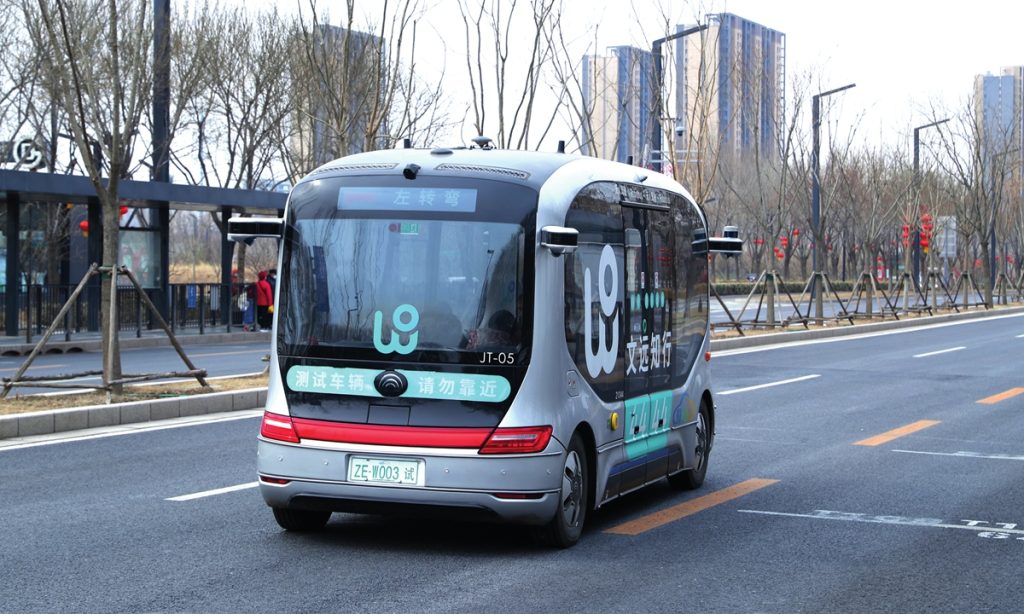Driverless robotaxi companies unlikely to report revenue from ride-hailing services over short term

Robotaxis are getting more and more attention in the Chinese market, but some companies say that driverless cabs are hardly generating any revenue at this stage.
Dazhong Transportation (Group) Co, one of Shanghai's leading taxi companies, has seen its stock prices rise due to the growing interest in intelligent connected vehicles. However, on Monday, the company announeced that these vehicles are still in an experimental stage and are not generating any substantial revenue.
"The development prospect of robotaxi remains uncertain, and there will be no significant impact on the company's operations in the short term," the company said.
Jinjiang Online, another Shanghai-based taxi company, also addressed the concept of driverless robotaxis. The company is conducting pilot operations of robotaxis in designated areas of Shanghai, which are still experimental and generate minimal revenue. The outlook for robotaxis is uncertain, but will not influence the company's short-term development.
Driverless robotaxis are facing challenges in achieving significant profits over the short term because some regulatory rules have not been implemented, transportation experts said.
"Prior to mass comercialization, relavent government departments need to conduct regular assess on the impact of robotaxis, focusing on road traffic efficiency, industrial development and social and ethical implications," Zhang Li, a vice dean of the Law School at China University of Political Science and Law, told the Global Times on Tuesday.
According to Zhang, operators of robotaxis services must address liability and passenger rights in case of traffic accidents. Operators should buy carrier insurance and be liable for breaches of contract or torts, just like traditional taxi companies.
"When passengers use the app, they enter into a contract, and any accident that disrupts the services should hold the provider accountable," Zhang said.
"From an economic restructuring standpoint, AI is a critical field where China aims to lead. Autonomous driving, a key player and driver of smart industry upgrades, will eventually move from pilot testing to commercialization. However, this process should be gradual and not rushed," Wu Shuocheng, a veteran automobile industry analyst, told the Global Times on Tuesday.